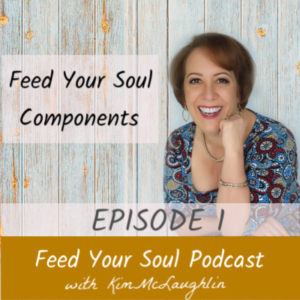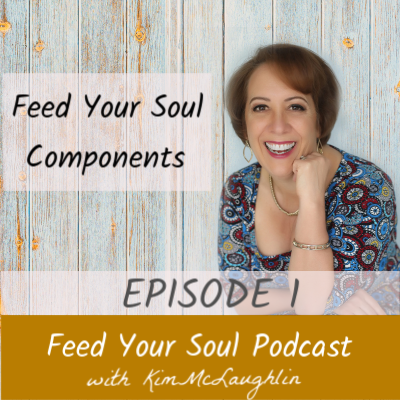 Let’s be honest, we are using food for comfort, for recreation, and for ways to connect. The vicious cycle of over-”dieting” and constant “dieting” has really made us feel horrible about ourselves. I know, I used to be there myself. When I began to look at the root-cause of my own overeating and over dieting, I came up with a different take on health and wellness. I truly believe in the value of living a life where I feel wonderful, fulfilled, and energized. This connected feeling has to be balanced in all areas of our lives: physical, emotional, thoughts, lifestyle, mindfulness and self-love. By focusing on creating more balance and peace in our lives as a whole, the emotional eating, overeating and binge eating stop in a more natural, stress-free way.
Let’s be honest, we are using food for comfort, for recreation, and for ways to connect. The vicious cycle of over-”dieting” and constant “dieting” has really made us feel horrible about ourselves. I know, I used to be there myself. When I began to look at the root-cause of my own overeating and over dieting, I came up with a different take on health and wellness. I truly believe in the value of living a life where I feel wonderful, fulfilled, and energized. This connected feeling has to be balanced in all areas of our lives: physical, emotional, thoughts, lifestyle, mindfulness and self-love. By focusing on creating more balance and peace in our lives as a whole, the emotional eating, overeating and binge eating stop in a more natural, stress-free way.
These principles have become my Six Core Components to Feed Your Soul and ultimately they lead to making peace with food. I think it all starts with “balance”. The six core components to Feed Your Soul serve as guideposts to determine whether your balanced. So part of this process is asking ourselves questions:
- Am I balanced in my life?
- Are things working out for me?
- Do I feel at peace in my life?
In looking at these six core principles you can see when you’re out of balance, you’ll be able to see which areas aren’t working for you to feel wonderful, fulfilled, and energized.
What I find fascinating is no one is ever out of balance in just one of the core concepts. Often we are out of balance in two, three, four, five, and many times it’s all six areas. We want to feel “in control” over food or feel like we have it handled, but food issues show up as a way to tell us when we’re out of balance in our lives. The “gift” is food tells us when we’re out of balance.
The Six Core Components & Getting Started
As you read through the Six Core Components below, start imagining how they are fitting into your life or how they’re out of balance in your life and that will give you an idea about what might mean need some work.
1) Physical
The physical component is associated with the food, but it is much more than that. I always like to start with the physical, because it is the area people want to feel relief. First, we look at how our bodies feel when we are hungry and when they feel full. This is a whole process to gain the understanding of hungry and full, since we have often been distracted from feeling our levels of hunger. It is critical to, also, look at how hormones (especially for women) are affecting our bodies.
You can gain more understanding about the hungry/full process in future podcasts and you can sign up for my Top Tips to End Emotional Eating to learn more now.
2) Emotions
How do emotions affect how we come to the table? The way we interact with food sometimes is dictated by our emotions. Our emotions make us want to have food, or we THINK it makes us want to have food. Then, food makes us FEEL a certain way. Think of it like this: you have emotions and that makes you want to have a certain food, but sometimes when we eat a certain food, it leads to other emotions that lead us to eat and to overeat. The types of emotions that affect eating the most tend to be anger, sadness, happiness, boredom, loneliness, and anxiety.

When we overeat because of emotions, we’re not coming from a place of really noticing our body.
When we’re focused on our emotions, our hunger and fullness doesn’t play a part in our decision about what we eat. Truthfully, the more we become connected with our body, the more we can have a feeling of empowerment. It can feel overwhelming when feels start surfacing and we can feel out of control. The out of control feeling can lead us to overeat, so we do not have to pay attention to the feeling. Overeating can happen and we won’t pay any attention to what’s going on inside. Eating for emotional reasons leads to more emotions. We can tend to feel angry, upset, overwhelmed, or sad, because we’ve overeaten. These are reasons why we want to end emotional eating.
Overeating due to emotions leads to more emotions. It is a vicious cycle
Emotions play a big part in eating we will talk about that in depth in these podcasts, I promise you.
3) Mental
Thoughts (our mental component) can lead us to overeat. Once I think about that food, I can think I can’t survive if I don’t eat. I used to think I could not stop thinking about food and I would say to heck with it, I have to eat it, because I wanted the thoughts to go away. Truthfully, I thought if I ate the food, the thoughts would go away. Well the thoughts do did go away temporarily, but then the feelings of anger at myself came on. I would condemn myself and making myself wrong and bad leading to lots of feelings of self-hatred.
The thoughts play its part in food, but the thoughts play a part in all of our lives.
Everybody I talked to, no matter if they have food issues or not, have thoughts that can be out of control. We all think our thoughts are real and we should just act upon them. I promise you in these podcasts we will talk about thoughts and we will talk about what to do about them specifically. I will give you clues, tools, and techniques that you can do immediately to really affect a change on your thoughts.
4) Lifestyle
The lifestyle concept encompasses all the areas of your life. The areas of lifestyle are your family, relationships, friends, work, exercise, education, vacations, and holidays. Lifestyle is a huge component we’ll be talking about those a lot most especially when we come near to different holidays. I am a strong proponent of having ideas and plans and really talking through how the holidays and being aware of how they show up in overeating. I have lots of things you can do in regards to the holidays, so I promise you as we come into holidays, as we come into vacation time, I will have specific podcasts focused on those areas.
5) Mindfulness
Mindfulness is important to assist you to be centered and connected inside of yourself. Some people will hear about the spirituality of mindfulness. It doesn’t have to be about religion and mindfulness doesn’t have to be about God. If that fits for you good, but it doesn’t have to.
religion and mindfulness doesn’t have to be about God. If that fits for you good, but it doesn’t have to.
Mindfulness is about how you feel connected with your inner self and your higher sense of purpose.
Truthfully, you can get out of balance in your connection with your inner self and it shows up in food and overeating. A lack of connection with your inner self can also show up in feelings of dissatisfaction in your life and feeling unhappy. Being more connected mindfully is one a strategy and a goal that I want to help you with. I want to see you more mindful more connection to yourself and to that guidance that will help you all along the way. Lastly one of the most important things you can do is have that inner connection to that greater purpose and inner knowing.
6) Self-Love
Self-Love is a super important area, which embodies self-love, self-worth, and self-esteem; it’s all of those components together. Truthfully, there are many who don’t feel a sense of self love. For instance, there’s a sense of self-loathing and self-hatred. The antidote to that is self-love, but we don’t know how to find it we’ve lost our way a lot of times about how do we feel that we’re okay. What people tell me is that they think that if they focus on self-love or self-esteem or self-worth that they’re being selfish. I say yeah bring it on because it’s not selfish in a negative way it’s self-full. It’s being full of yourself. Honestly, the more you are connected to yourself; the more positive you feel the more peaceful you feel.
I promise you overeating will lessen and food will feel balanced for you, the more you practice self-love.
Sometimes we’ve been so far away from that feeling of self-love that we don’t know how to get there. How do we get to that feeling of self-love? If you are up for more self-love, I’m your girl. I’ve got clues. I’ve got tips. We will focus, in the future podcasts, on feeling the sense of self-love.
Every Feed Your Soul with Kim Podcast will get you into action.
I wanted to show you in this first podcast what to expect. Truthfully, there is a lot to cover and we will look at all the components and features of overeating. I have big plans for this podcast. I know you want to feel empowered with food and your life and this is the place for you. We will go over self-care tools and self-care techniques to get you moving forward. In order to get more support, I really recommend you go to the free Feed Your Soul Community Facebook page and ask to be added.
In order to get into action consider; Where do you feel in balance? Where do you feel out of balance in the six core components? In conclusion, keep listening each week to a new edition of this podcast. You will find each week there is a new topic packed with helpful information.
Thanks for joining us.
Kim McLaughlin, MA is a Counselor, Speaker, and Inspirational Coach who specializes in working with people who suffer from overeating, binge eating, emotional eating and  over dieting. She is a Certified Intuitive Eating Counselor. Kim is the author of the newly released book Feed Your Soul Nourish Your Life! A Six Step System to Peace with Food and the Amazon #1 Best Selling book Discovery Your Inspiration.
over dieting. She is a Certified Intuitive Eating Counselor. Kim is the author of the newly released book Feed Your Soul Nourish Your Life! A Six Step System to Peace with Food and the Amazon #1 Best Selling book Discovery Your Inspiration.
She has recently launched her podcast Feed Your Soul with Kim. You can find it on all podcast platforms including ITunes.
Kim McLaughlin has been identified as writing one of the Top 50 Blogs about Ending Emotional Eating by the Institute on Emotional Eating. Sign up for Kim’s free Special Report: Top Strategies to End Emotional Eating here or visit Kim’s website at www.FeedYourSoulUnlimited.com.



